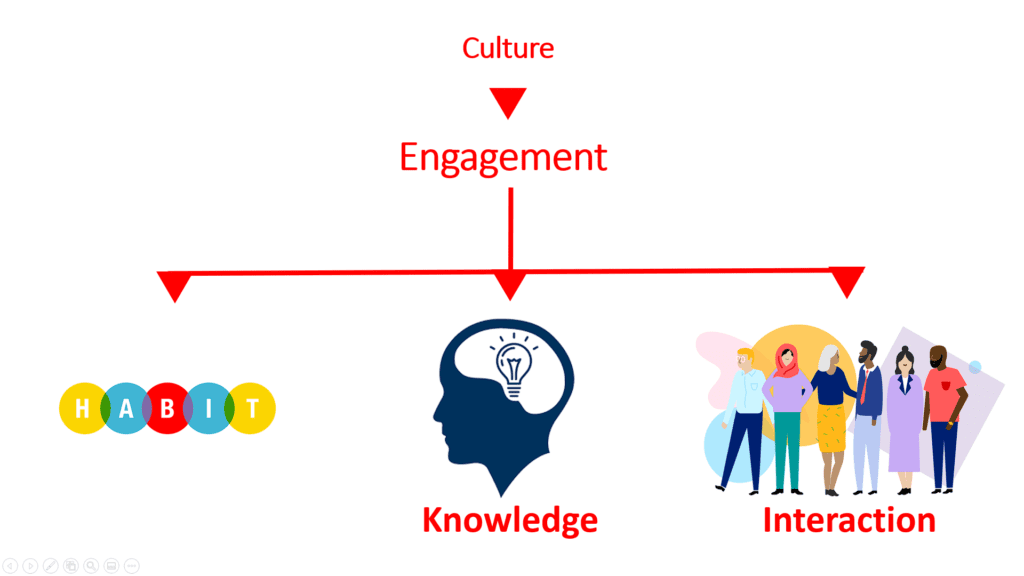Culture is what enables companies to grow and scale at pace – not products or services. It’s autocratic in direction and democratic in execution.
Unicorns feed on them. The business community thrives on it, more so after the disruption brought in by the pandemic.
But how does it translate to Direct Selling? Does culture make a significant shift in growth in Direct Selling as well?
In practicality, culture has a much deeper impact on direct selling teams than corporates. There is a lack of a rigid melting pot in which you can mold culture across teams. That’s why good culture becomes critical to driving sustainable growth.
You and your core leadership are the faces of the organization for the next generation. And when scaling, the gap between the leader’s desired culture and the culture perceived by partners widens.
So, in case you and your team do not do a good job at the beginning, it becomes a challenge later on. And since most of us start fresh yet have a team to lead from the very beginning, it becomes hard to implement a good culture.
This article will give you five solid pointers through which you can craft and implement a good culture in your team.
The following are secret insights that can unlock the immense potential that’s locked within your team.
But please note, culture especially in this trade is a function of your personal and moral character.
So, at the end of the day, these points are mere vectors in your decided direction. You, and you alone, can decide the direction of your team culture.
Pointers towards implementing a strong team culture in Direct Selling:
- Positioning your virtues
- Foundation in Professional Competence
- Duplication is Key to Scale
- Fostering Friendly Competition
- The rule of ‘One of Many’

Positioning your Virtues
There has to be a set of principles or virtues which your parents/teachers taught you, that define who you are. And that is going to define the innermost layer of your team’s culture in the future. Understand, that you are shaping the possibilities of the masses.
That is why, you have to be VERY vocal regarding your virtues (and/or the vices you hate), to a point where it becomes your team’s ethos. In clear simple language, keep communicating about them again and again, through various mediums.
The flow of strong virtues throughout the team defines the character of the team.
And if a rotten apple enters your team (which they will), you don’t have to come and fix them. That will be done by the team.
One example of this is positioning your leadership, explained in my previous piece on How to use Communication for sustainable growth in Direct Selling.
Foundation in Professional Competence
This is as true to Direct Selling as to any other profession. A team thrives on two things – Professional Competence and Motivation. But deciding on a mix is critical.
Putting too much motivation into a beginner’s head with less focus on Professional Competence can be disastrous.
One of the many reasons why most beginners fail in the business.
As long as his/her why is clear, the only point we should focus on is Professional Knowledge. This entails information about the product, sales and communication techniques, ability to interpret things, course correction, etc.
Priority toward Professional knowledge and merit helps scale a direct selling business and lies the foundation for sharper yet sustainable growth in the future.
A team will be able to bear the stress of ‘sharper yet sustainable’ growth charted out by leadership only if they are equipped with the proper professional knowledge from the very beginning. Otherwise, there is going to be a lot of depression and quitting.
Duplication Key to Scale
You might be the best salesman/woman out there but you are not worth much in Direct Selling if you do not know the art of duplication.
The faster the duplication in teams, the faster your business grows. Hence it can be denoted as the Key to Scale.
When it comes to duplication, we have to first identify the amplifiers in each team – the individuals who learn fast and are willing to execute. Once they are identified, we need to dedicate ourselves to training them in all verticals of professional knowledge.
Once this training phase is done, the only thing remaining is to follow up on how they are training their team on the same.
The second phase will be a simpler one but will span an extended period of time. Make sure you have time enough to make the process as enriched as possible and prevent the communication to get fabricated as much as possible.
Fostering Friendly Competition
The most important ingredient of a high-performance culture is friendly competition. The habit starts with you but is carried forward by your core leadership, downward the generations.
The problem statement is: There must be a sense of competition, but what if these people know how to be friends outside work?
There can be many solutions to this problem depending upon the nature of the people we are looking at. But creating a habit of sharing the best learnings among teams works the best.
Direct Selling is more entrepreneurship than a job but you have to be good enough on a few elemental things, and repeat it again and again, forever.
And these elemental things have their fair share of nuances. And that brings forth the best learnings across teams. One can be good at something, whereas one might not.
Making a habit of sharing best learnings where each team learns to share and learn insights, can be the door to understanding and respecting another’s presence.
‘One among Many‘
This might appear unpleasant for many, especially individuals outside the trade. But this is a fundamental trait I have seen amidst multiple teams.
If there is only one high performer in the team, it’s very likely he will develop pride – to a point of overconfidence. That will lead to a lot of unnecessary egos and him/her seeing lowly upon his other colleagues. This is why very early in the team you should implement and nurture the logic of ‘One among Many’.
You have to take the onus of not only producing high performers across teams and generations but also communicating the message of ‘One among Many’. No one is the one – he/she is the one among many.
For that, you need to make sure your business is not lopsided towards any one leader. And that too, in a constructive way.
If any plant is growing fast, you do not restrict the water or your attention towards it but plant another tree. Remember this golden rule of networking!
Once implied that will be the foundation of friendly competition.
At the end of the day, this is as much a business of people as others. The consumer journey is longer, the retention rate is much lower, and you have a team to lead from day one – the members are from all walks of life; add to that if you do not have any experience.
But remember one thing – nothing of that counts. A lot of people are millionaires with all those odds on their end. What matters is your patience, perseverance, and how you behave towards people. Look for people who beyond everything are willing to be accountable – or can be taught to do so.
Creating a culture that is open, accepts criticism as feedback, and encourages everyone to participate is the stepping stone to shared success!




